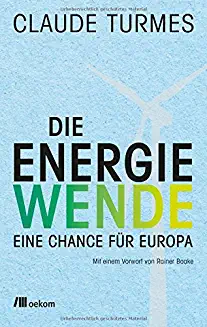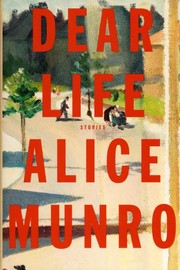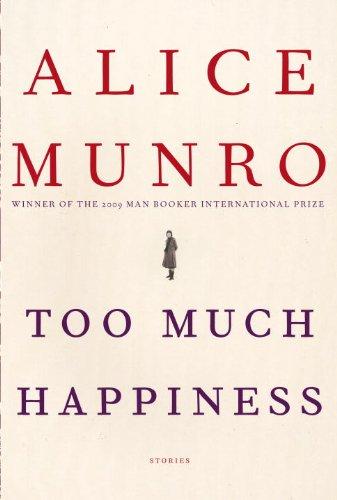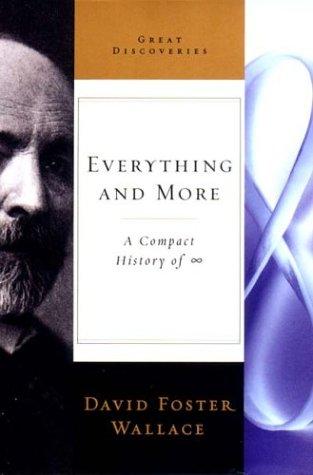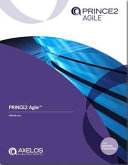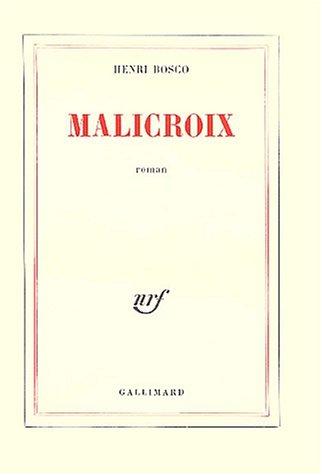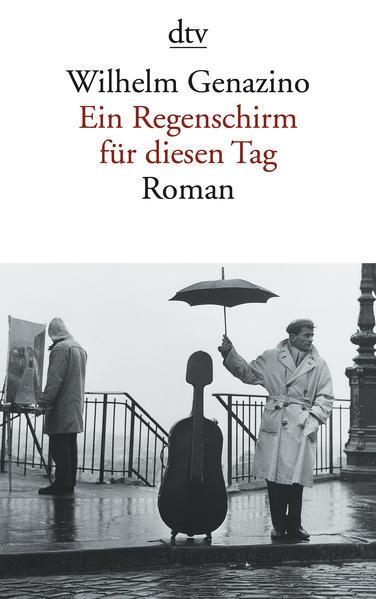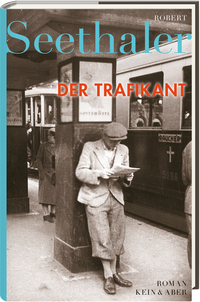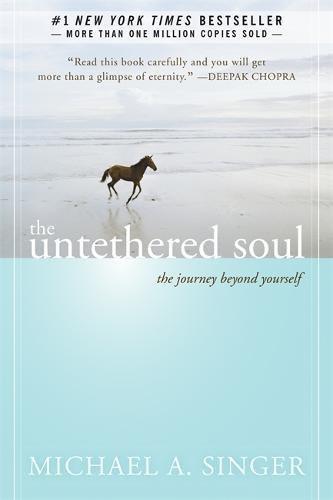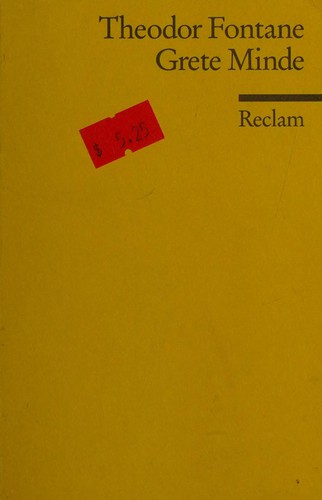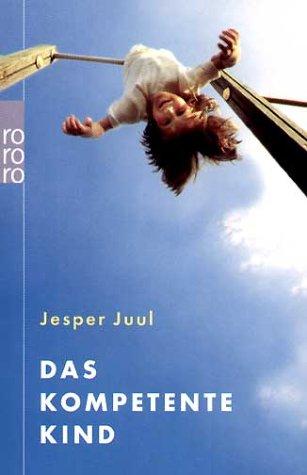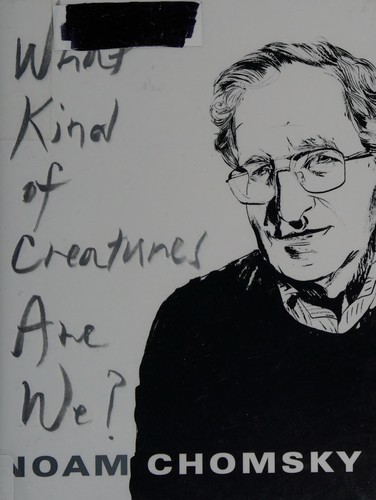From what I remember, Jonathan Frantzen is a fan of Alice Munro. If you don't have enough time to read a novel, read a story by Alice Munro -- that's his advice as I understood it. And that's what I did and enjoyed. A story reads in three hours, ideal for a slow afternoon in the park at the weekend.
There is probably a deep analysis, or even several, to each story. I'm not going to try to analyse the stories here in this review now. What I like, what I admire, is how Munro manages to take me out of the role of reader. The stories touch me.
I read "Dear Life" and "Too Much Happiness" in parallel. Some stories I have read several times: "Train", "Dimensions", "In Sight of the Lake" (inside?).
These books will certainly stay on my shelf and I will pull them out from time …
Reviews and Comments
Born at 332ppm. Personal opinions here. #Rstats user.
This link opens in a pop-up window
Karsten W. reviewed Dear life by Alice Munro
Review of 'Dear life' on 'Goodreads'
5 stars
From what I remember, Jonathan Frantzen is a fan of Alice Munro. If you don't have enough time to read a novel, read a story by Alice Munro -- that's his advice as I understood it. And that's what I did and enjoyed. A story reads in three hours, ideal for a slow afternoon in the park at the weekend.
There is probably a deep analysis, or even several, to each story. I'm not going to try to analyse the stories here in this review now. What I like, what I admire, is how Munro manages to take me out of the role of reader. The stories touch me.
I read "Dear Life" and "Too Much Happiness" in parallel. Some stories I have read several times: "Train", "Dimensions", "In Sight of the Lake" (inside?).
These books will certainly stay on my shelf and I will pull them out from time to time.
Karsten W. reviewed Too much happiness by Alice Munro
Review of 'Too much happiness' on 'Goodreads'
5 stars
From what I remember, Jonathan Frantzen is a fan of Alice Munro. If you don't have enough time to read a novel, read a story by Alice Munro -- that's his advice as I understood it. And that's what I did and enjoyed. A story reads in three hours, ideal for a slow afternoon in the park at the weekend.
There is probably a deep analysis, or even several, to each story. I'm not going to try to analyse the stories here in this review now. What I like, what I admire, is how Munro manages to take me out of the role of reader. The stories touch me.
I read "Dear Life" and "Too Much Happiness" in parallel. Some stories I have read several times: "Train", "Dimensions", "In Sight of the Lake" (inside?).
These books will certainly stay on my shelf and I will pull them out from time …
From what I remember, Jonathan Frantzen is a fan of Alice Munro. If you don't have enough time to read a novel, read a story by Alice Munro -- that's his advice as I understood it. And that's what I did and enjoyed. A story reads in three hours, ideal for a slow afternoon in the park at the weekend.
There is probably a deep analysis, or even several, to each story. I'm not going to try to analyse the stories here in this review now. What I like, what I admire, is how Munro manages to take me out of the role of reader. The stories touch me.
I read "Dear Life" and "Too Much Happiness" in parallel. Some stories I have read several times: "Train", "Dimensions", "In Sight of the Lake" (inside?).
These books will certainly stay on my shelf and I will pull them out from time to time.
Karsten W. reviewed Everything and More by David Foster Wallace
Review of 'Everything and More' on 'Goodreads'
5 stars
I came across David Foster Wallace through his famous speech "This is Water". I then read some of his essays, about lobsters, about cruises, about severe depression and about how few good books there are on mathematics that can be understood by lay people.
The last essay in particular, "Rhetoric And The Math Melodrama", made me curious about how Wallace himself would write such a book on mathematics. And indeed, Everything and More is a unique non-fiction book.
I like the personal references: Wallace's niece is mentioned, the high school teacher gets a place of honour. I like how Wallace sketches the human side of the mathematicians (Kronecker, Cantor, Weierstrass, Dedekind et al) with one paragraph, I had an immediate image, and contrary to some biographies, I think these images are plausible.
I also like how he takes elements of textbooks on mathematics and plays with them. Abbreviations suddenly appear …
I came across David Foster Wallace through his famous speech "This is Water". I then read some of his essays, about lobsters, about cruises, about severe depression and about how few good books there are on mathematics that can be understood by lay people.
The last essay in particular, "Rhetoric And The Math Melodrama", made me curious about how Wallace himself would write such a book on mathematics. And indeed, Everything and More is a unique non-fiction book.
I like the personal references: Wallace's niece is mentioned, the high school teacher gets a place of honour. I like how Wallace sketches the human side of the mathematicians (Kronecker, Cantor, Weierstrass, Dedekind et al) with one paragraph, I had an immediate image, and contrary to some biographies, I think these images are plausible.
I also like how he takes elements of textbooks on mathematics and plays with them. Abbreviations suddenly appear that have to be remembered, proofs, "interpolations". It may give a layman a sense of how mathematics is often written then and now.
The many footnotes and "IYI" ("if you're interested") insertions make the revision processes visible to me. Sometimes there is direct reference to notes from the editor, sometimes a footnote nullifies itself, "but in an interesting way". This brings Wallace closer to me, I am not only concerned with the text and its content, but also with Wallace, with the thoughts that (might) have led to the text.
From a mathematical-philosophical point of view, I find §1c particularly interesting, where two types of abstraction are presented: one where the concrete is inferred to the abstract ("horse", "forehead", "horn") and one where different abstractions are linked together ("unicorn"). I also find interesting, even if I don't yet know exactly what I will do with it, the criticism of the "Theory of Types" in §7f, according to which it is be a philosophically bad idea to derive definitions from paradoxes.
Mathematical induction, the epsilon delta technique and the diagonal proof are presented as techniques for dealing with the infinite. From my point of view, the compactification is missing, although the idea was touched upon. I would also have liked more on the axiom of choice. But I can understand that in a book where Cantor is the focus, it is only mentioned. (For those interested in mathematics: Eric Schechter in Handbook of Analysis and its Foundations really goes into this topic intensively from a practical point of view).
In short: a beautiful book that invites you to pay attention not only to the content but also to the form.
Karsten W. reviewed PRINCE2 Agile by AXELOS
Review of 'PRINCE2 Agile' on 'Goodreads'
4 stars
In March 2021 I passed the exam to become a "PRINCE2 Agile Practioner".
The training and the preparation for the exam were very helpful for me to reflect myself as a project manager in a consulting company.
In addition to the training, I had two textbooks at my disposal: the general PRINCE2 textbook ("Managing Successful Projects with PRINCE2") and "PRINCE2 Agile", which I will go into in more detail in a moment.
First, a brief introduction to PRINCE2. PRINCE2 is (as I understand it) a partially abstract system for describing project structures. I have the idea that some smart people have analysed a large portfolio of projects and have extracted and named recurring structures (principles, themes, processes) from it. For example, I found it interesting that it is not a good idea to bundle certain roles in the project in one person, e.g. project management and project assurance.
While PRINCE2 …
In March 2021 I passed the exam to become a "PRINCE2 Agile Practioner".
The training and the preparation for the exam were very helpful for me to reflect myself as a project manager in a consulting company.
In addition to the training, I had two textbooks at my disposal: the general PRINCE2 textbook ("Managing Successful Projects with PRINCE2") and "PRINCE2 Agile", which I will go into in more detail in a moment.
First, a brief introduction to PRINCE2. PRINCE2 is (as I understand it) a partially abstract system for describing project structures. I have the idea that some smart people have analysed a large portfolio of projects and have extracted and named recurring structures (principles, themes, processes) from it. For example, I found it interesting that it is not a good idea to bundle certain roles in the project in one person, e.g. project management and project assurance.
While PRINCE2 is quite abstract and formal, PRINCE2 Agile is an adaptation of PRINCE2 that works well for complex projects. Complex projects are projects where it is not clear in detail at the beginning how the project will proceed and are in contrast to complicated or simple projects.
Here, the author brings order to the different agile frameworks. On the one hand, there are agile practices (e.g. Scrum) and tools (Kanban). I use Scrum practices in particular more and more. The "time-boxing" of the sprints reduces stress because it protects against subsequent call-ins. Changes just have to wait until the next sprint. Stand-ups are helpful in a multi-project environment to remind people about the project.
But the word "agile" is not just about a working style. "Agile" needs framework conditions. The client has to be convinced of the iterative way of working and a flexible handling of quality and scope. And the team also needs to get to know agile practices and be willing to try them out. The book highlights this and gives valuable advice on how to achieve each.
For example, the "Agilometer" is presented, where agility is measured in six dimensions. Because according to the author -- whose name is Keith Richards, by the way -- "agile" is not to be understood categorically (yes/no), but metrically (more or less). In my opinion, the Agilometer is comparable to the newer Agile Fluency Model.
Although I found the book very helpful to learn about agile project management. However, I also needed the impetus provided by the exam, the incorrectly answered questions and the follow-up research. The book is not suitable to browse through in a quiet minute. It is heavily structured, with lots of lists and headings. It is not visually attractive. Therefore, it only gets 4 out of 5 points.
The next step in this topic for me is to apply the methodology to projects of all kinds, to take the time to apply the PRINCE2 terminology to what I am doing.
Karsten W. reviewed Malicroix by Henri Bosco
Karsten W. reviewed Transformative Experience by L. A. Paul
Review of 'Transformative Experience' on 'Goodreads'
5 stars
There are decisions that we cannot make through reason. These are, for example, decisions that change us in such a way that we cannot imagine the situation after the decision. Should I have a child? Should I join the church? Or, to quote an example from a book I recently finished: Should I accept the inheritance or not? L.A. Paul speaks of transformative experiences and sheds light on the problems that a rational, reason-based approach entails:
1. Is the information available on the consequences of the decision applicable to me?
2. Problems of merging information: "There might be a mistake in trying to reduce the richness and quality and character of human experience to numbers".
3. Diachronic decision-making: "Which self matters: the self making the decision, or the self that would result?"
It's about the value of first-hand experience. There is a difference between getting explained what "red" is and …
There are decisions that we cannot make through reason. These are, for example, decisions that change us in such a way that we cannot imagine the situation after the decision. Should I have a child? Should I join the church? Or, to quote an example from a book I recently finished: Should I accept the inheritance or not? L.A. Paul speaks of transformative experiences and sheds light on the problems that a rational, reason-based approach entails:
1. Is the information available on the consequences of the decision applicable to me?
2. Problems of merging information: "There might be a mistake in trying to reduce the richness and quality and character of human experience to numbers".
3. Diachronic decision-making: "Which self matters: the self making the decision, or the self that would result?"
It's about the value of first-hand experience. There is a difference between getting explained what "red" is and seeing red. It is worth pursuing this value of self-made experiences and not relying or not relying solely on the views of others. "There's a role for first-person experience for evaluating quality of life".
The book by L.A. Paul is for me an example where reason shows limits to reason. "I want us to recognize what we can do and what we can't do. What we can know, and what we can't know. Not set ourselves impossible tasks. So, take a stance involving epistemic humility; and then, from that stance, look at what kinds of decision models we might be able to build". I like that. Other examples for me are Karl Popper on truth and Noam Chomsky on the limits of knowledge that follow from language.
Actually, I didn't read the book at all, but heard an interview (www.econtalk.org/l-a-paul-on-vampires-life-choices-and-transformation/) about the book. From her voice, the author seems to have found peace in reason. I am not planning to read this book, but am waiting for her next book, "Transformative Religious Experience and the Paradox of Empathy", expected 2021.
Karsten W. reviewed Ein Regenschirm für diesen Tag by Wilhelm Genazino
Review of 'Ein Regenschirm für diesen Tag' on 'Goodreads'
4 stars
In 2017 I visited an art exhibition about Otto Marseus van Schrieck, whose subject matter was mainly fungi, insects and spiders, amphibians and reptiles, especially snakes. He was the inventor of the motif "forest floor still life".
The book here, which I read three years later, reminded me of the exhibition. On the one hand I admire the detailed depiction of the small and numerous, on the other hand the subject makes me shudder.
Karsten W. reviewed Der Trafikant by Robert Seethaler
Review of 'Der Trafikant' on 'Goodreads'
2 stars
I read the book because Robert Seethaler was recommended to me, and in the book store this book had the most appealing blurb. Wien, Freud, the time just before the Nazis came to power in Austria.
Sometimes I wonder what I would do if I would have lived in the pre-Nazi time. Would I be a conformist? Would I close my eyes? Would I stand up? It is really hard to say, and the book did not bring me on a mental journey to figure that out. Or did I simply not get the main character? Why does he lie to his mother about Trnskie? Why does Franz suddenly decide to place Trnskie's trousers on the flagpole in the center of the city? This comes completely out of the blue, I mean, he does exactly what his "friend" Freud says to do. There is no explanation, no inner dialog (about …
I read the book because Robert Seethaler was recommended to me, and in the book store this book had the most appealing blurb. Wien, Freud, the time just before the Nazis came to power in Austria.
Sometimes I wonder what I would do if I would have lived in the pre-Nazi time. Would I be a conformist? Would I close my eyes? Would I stand up? It is really hard to say, and the book did not bring me on a mental journey to figure that out. Or did I simply not get the main character? Why does he lie to his mother about Trnskie? Why does Franz suddenly decide to place Trnskie's trousers on the flagpole in the center of the city? This comes completely out of the blue, I mean, he does exactly what his "friend" Freud says to do. There is no explanation, no inner dialog (about this), nothing.
Also I was interested in learning something new about Sigmund Freud. Little of his work is well-received nowadays. But the book gives almost nothing on Freuds work, Seethaler uses him just as a prominent example. I think it is missleading to believe that Freud was in any way similar to the person Seethaler describes.
All in all, nothing new, nothing challenging, nothing out of the ordinary. It is well written though, has reoccurring elements like the doves or the associations with the rural life as a child. It has some wit. It is not monotone. But all that craft does not help since Seethaler has nothing to say.
To be frank, this book feels like a commissioned work: the Nazi theme, antisemitism, love, coming of age -- all nicely packaged and easy to read. An engineered smash hit.
Karsten W. reviewed The Untethered Soul by Michael A. Singer
Karsten W. reviewed Grete Minde by Theodor Fontane (Universal-Bibliothek)
Karsten W. reviewed Anarchy comics by Jay Kinney
Reviving an iconic comic series originally published from 1978 to 1986, this exclusive collection brings …
Review of 'Anarchy comics' on 'Goodreads'
1 star
Not so relevant for today as I thought it was.
Karsten W. reviewed Das kompetente Kind. by Jesper Juul
Review of 'Das kompetente Kind.' on 'Goodreads'
5 stars
1) Childrens cooperate, even when they cra or when they are aggressive.
2) There is an inner quality "self-esteem", which is nutured by being seen and by being experienced/witnessed as precious the way we are, and there is an outer, acquired quality "self-confidence", which is nutured by praise and critique. The difference between both is the difference between existence and performance.
3) Successfully setting limits typically requires a passive part, where we describe the situation and our feelings, and an active part, where we take responsibility for us and our well-being. This active part can start with "I want that you..."
The are three ideas I took from the book. They help me rethink my interaction with my partner's kids. And I could not stop thinking what all this means when dealing with my inner child as well.
The detailled descriptions and interpretation of small moments in life show that …
1) Childrens cooperate, even when they cra or when they are aggressive.
2) There is an inner quality "self-esteem", which is nutured by being seen and by being experienced/witnessed as precious the way we are, and there is an outer, acquired quality "self-confidence", which is nutured by praise and critique. The difference between both is the difference between existence and performance.
3) Successfully setting limits typically requires a passive part, where we describe the situation and our feelings, and an active part, where we take responsibility for us and our well-being. This active part can start with "I want that you..."
The are three ideas I took from the book. They help me rethink my interaction with my partner's kids. And I could not stop thinking what all this means when dealing with my inner child as well.
The detailled descriptions and interpretation of small moments in life show that Juul is really an expert in his field.
Karsten W. reviewed What kind of creatures are we? by Noam Chomsky (Columbia Themes in Philosophy)
Review of 'What kind of creatures are we?' on 'Goodreads'
5 stars
It was a long and challenging read, partly because I am new to most topics of the book (linguistics, mind-body-problem), partly because it is not self-contained. For me, it was a book to work with -- googling, reading the footnotes, googling again, making notes -- and so on.
Here are some highlights of what I learned. First, what is the difference between humans and (other) animals? Our language. It allows to generate "unbounded arrays of [...] expressions" of what happens in our head. Animals may have languages, too, but are limited in what they can express, mainly because the elements of their language have a direct link to what happens outside them. The "atomic concepts" of human language, on the other hand, can be seen as linked to mental activities, "though there are of course actions of refering and denoting." To me, this distinction is quite sophisticated and makes a …
It was a long and challenging read, partly because I am new to most topics of the book (linguistics, mind-body-problem), partly because it is not self-contained. For me, it was a book to work with -- googling, reading the footnotes, googling again, making notes -- and so on.
Here are some highlights of what I learned. First, what is the difference between humans and (other) animals? Our language. It allows to generate "unbounded arrays of [...] expressions" of what happens in our head. Animals may have languages, too, but are limited in what they can express, mainly because the elements of their language have a direct link to what happens outside them. The "atomic concepts" of human language, on the other hand, can be seen as linked to mental activities, "though there are of course actions of refering and denoting." To me, this distinction is quite sophisticated and makes a lot of sense to me.
Second, while equipped with an infinite variety of what we can express with our language, our "human mind is [still] a biological system with a limited array of admissible hypotheses." Noone would doubt that our gut brain has limited capacity to understand the world, everyone would agree that rats can never solve prime number mazes; as Donald Hoffman puts it in his TED talk, evolution seems to favour fitness, not understanding reality. So once we agree that our cognitive capacities are limited, it makes sense to separate between problems (that lie within our cognitive capacities) and mysteries (outside our understanding, including questions we can not ask, or topics we can not provide evidence for). It also means that if the reality outside our understanding/ experience is entangled with the world as we understand it, we do simply (cannot help but) ignore this.
Third, the anarchist Chomsky challenges the concept of "physical" or "material". This concept, he argues, steems from a mechanical philosophy view point of the 16th century, according to which physical objects are persistent in time and space and causality is explained through contact. This world view comes soon to its limits: Gallilei could not accept any theory that explains the tides, Decartes realized that the creativity of language can not explained in these terms and hence proclaimed a spiritual world apart from the physical, Newton discovered gravity as "action at a distance" -- without contact -- that finally proved the mechanical world view as wrong. Until today, so I understand Chomsky, noone brought new meaning to the concept of "physical" or "material". I think that is what the principle of complementarity is about, slowly moving away from the notion of a particle that acts through contact.
This great book has deserved a place in my bookshelve to be read again in a year or so when the first impressions have sunk in.

